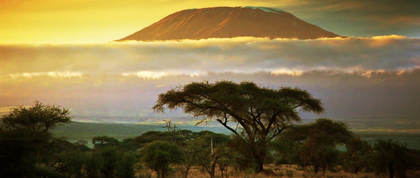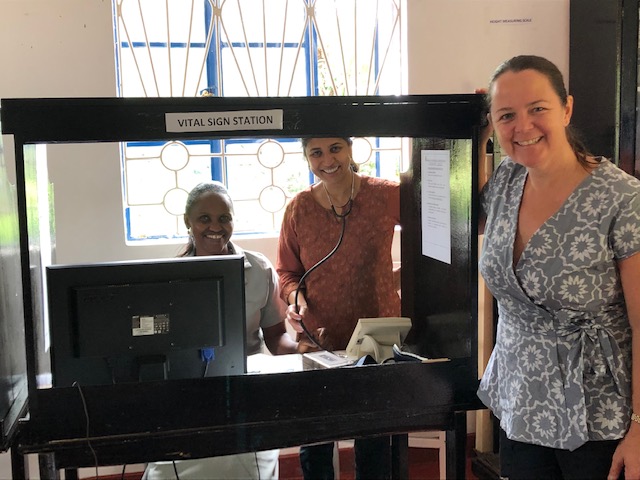
A dispatch from the road from Dr. Niyati Parehk who uncovers new research opportunities for students with Dr. Karen Yeates.
In the backdrop of the dormant Mt. Kilimanjaro is the town of Moshi, home to the Tanzanian component of the Prospective Urban and Rural Epidemiology (PURE) study, a multi-continent longitudinal health cohort. The PURE Study in Tanzania of which Dr. Karen Yeates is PI, assesses NCDs, urbanization and rapid demographic shifts in urban and rural populations of 33 countries. This study also collects rich data on lifestyle, behaviors, and social and environmental factors. This opens doors for collaborations between Dr. Yeates and I to enhance the NCD research component at GPH. In particular, they are interested in comparing data from cohorts within a country of origin with immigrants and US born persons among other lifestyle related investigations.

Pictured: Drs. Niyati Parekh and Karen Yeates at Pamoja, a low-cost clinic for the uninsured.
Tanzania offers several opportunities for both doctoral and MPH students to collaborate on various ongoing projects such as:
- Tanzania National Cervical Cancer Prevention Program implementation research opportunities for NYU students.
- Adolescent reproductive health and access to non-traditional ‘outlets’ for reproductive health & rights education and contraception.
- Implementation research on health system strengthening and community-based approaches to hypertension screening and management.
- Improving Maternal Health through health system strengthening.
Finally, Tanzania offers a culturally rich and safe place for internship opportunities for our students. An example is the Born to Learn School at the foothills of Moshi near the nearly 400 hectares of sugarcane plantations where Masai and other tribal children from surrounding communities attend school. These children are from resource-poor villages that have no infrastructure (no running water, little food, no electricity, no medical facility). It’s heartwarming to see how these kids move on to careers in the cities! We sincerely hope that GPH students can take advantage of these previous opportunities.